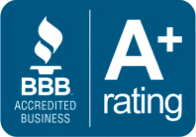Are Employees Pre and Post Shift Activities Compensable?
Author: Mark Reinecke
On December 9, 2014, the U.S. Supreme Court ruled that hourly Amazon.com warehouse workers who were required to undergo a security screening before leaving the warehouse each day were not entitled to compensation for the time it took for the security screening. The decision overturned a ruling by the Ninth Circuit Court of Appeals in San Francisco. The court reasoned that the screenings “were not integral and indispensible to the employee’s principal activities.” The Supreme Court relied on the Portal-to-Portal Act which narrowed the broad judicial interpretation given to the Fair Labor Standards Act undefined terms “work” and “work week”. The court determined that pre or post work activities which are integral and needed for the carrying out of the employee’s principal activities are compensable.
For illustration, the court cited a Department of Labor regulation that “the time spent by an employee at a chemical plant changing clothes would be compensable if he could not perform his principal activities without putting on certain clothes but would not be compensable if changing clothes were merely a convenience to the employee and not directly related to his principal activities.” Further examples of non-compensable activities included “checking in and out and waiting in line to do so, changing clothes, washing up or showering, and waiting in line to receive paychecks.”
The court also identified activities that satisfy the test for compensability including time battery plant employees spent showering and changing clothes “because the chemicals in the plant were toxic to human beings and the employer conceded that the clothes changing and showering activities of the employees were indispensible to the performance of their productive work and integrally related thereto. Also, time meat packer employees “spent sharpening their knives because dull knives would slow down production on the assembly line effect the appearance of the meat as well as the quality of the hides, cause waste, and lead to accidents.” By contrast, the court referred to a case in which it was determined that “the time poultry plant employees spent waiting to don protective gear because such waiting was two steps removed from the productive activity on the assembly line was non-compensable.”
The take away from the court’s ruling for Central Oregon employers is that it should be objectively determined whether your employees’ pre or post shift activities are indispensible to the principal activity the employees were employed to perform. If the activities are determined to be indispensable, the pre or post shift time must be compensated.

